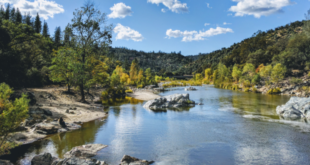Leucadia Wastewater District (LWD) in Carlsbad is currently accepting Teacher Grant applications from schools within LWD’s service area which includes nine elementary schools as well as Diegueno Middle School and La Costa Canyon High School. Three grants of up to $2,000 per grant has been allocated for teachers in local schools. A total of $6,000 has been allocated for this year’s program.
The LWD Teacher Grant program is a unique opportunity for the district to fund projects to help students’ understanding of wastewater, water management or water recycling. Previously granted projects have included elementary school gardens or starting and maintaining water reduction projects such as native plant gardens, rainwater harvesting or water saving irrigation. Grants may be written to provide funding for lab or field equipment, field trip transportation, educational program materials, etc.
In order to promote a variety of grant applications, Leucadia Wastewater District has compiled a list of resources that educators may want to integrate into a grant project, with an emphasis on science, environmental education and local resource protection:
Tours of Leucadia Wastewater District or Encina Wastewater Treatment Facility — These Carlsbad facilities, safely transport and treat wastewater in the local area. Some wastewater is recycled into nonpotable water for irrigation purposes, while some of the treated water is discharged into the ocean. The Encina facility also produces fertilizer from the treatment by-products. This crucial work can be understood during a visit to either facility. Tours are suitable for any school-aged children and can be adapted to grade level and class interest.
Earth Echo International — The EarthEcho Water Challenge (formerly World Water Monitoring Challenge) is an international program that runs annually from March 22 (United Nations World Water Day) through December and equips anyone to protect our water resources. The EarthEcho Water Challenge builds public awareness and involvement in protecting water resources around the world by engaging citizens to conduct basic monitoring of their local waterbodies. The resource materials available for the EarthEcho Water Challenge include videos, event checklists, action guides, and other materials to support your participation. Go to: www.monitorwater.org/tools or www.earthecho.org.
Project WET – Worldwide Water Education — The mission of Project WET is to reach children, parents, educators and communities with water education. Activities are designed to satisfy the goals of educational programs by complementing existing curricula rather than displacing or adding more concepts. Go to: www.projectwet.org for information and resources.
EPA Teacher Resources and Lessons Plans — The EPA offers dozens of activities and projects for schools from kindergarten through high school on everything from learning about parts per million as a concept; climate change projects, pollution prevention and ecosystems; tap water; science fair projects; “beach kids” activities; building your own aquifer; down the drain activities; the hydrological cycle; “cool school” activities; “respect the beach” and more. Because of the plethora of projects, applicants may want to consult with the LWD for recommendation for teachers. Check out the options at: www.epa.gov/students/teachers.html.
Water Education Foundation — The Foundation also provides educational resources for grades k-12 with maps, games, curriculum, stories and activities. Resources may be purchased by a teacher/school, and they all meet CA science curriculum standards. Project WET curriculum contains over 90 interdisciplinary activities designed for grades k-12 and for use in formal and non-formal educational settings. http://www.watereducation.org/project-wet
Water On the Web (WOW) for High School — Water on the Web helps high school students understand and solve real-world environmental problems using advanced technology. WOW is a complete package containing two sets of curricula, data from many lakes and rivers nationwide, extensive online primers, data interpretation and Geographic Information System (GIS) tools, and additional supporting materials. Students learn about aquatic ecology, water quality, watersheds, data collection, data interpretation; visualize animated data and supplemental information from lakes and rivers nationwide; and use lessons from the aquatic environment and real lake data to explore basic science and water science concepts. Go to: http://www.waterontheweb.org to research the WOW package.
The deadline to for applications to be submitted is Thursday, Oct. 25, 2018. Selected recipients will be notified during January 2019 and the grants will be awarded in February/March 2019. Grant recipients will also be invited to attend the March LWD’s Board of Directors’ meeting at the LWD’s District office. For any questions, prospective applicants should call Mark Brechbiel at: (760) 753-0155 ext. 3001.
 California Water News Daily Your Source For Water News in California
California Water News Daily Your Source For Water News in California


